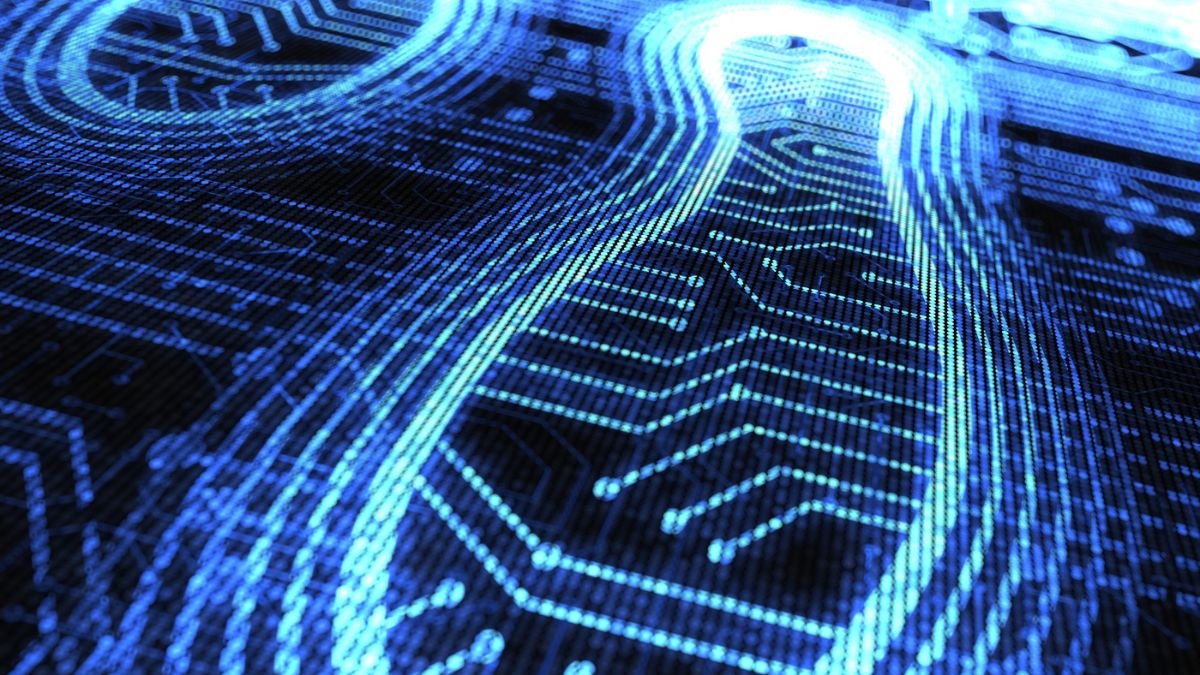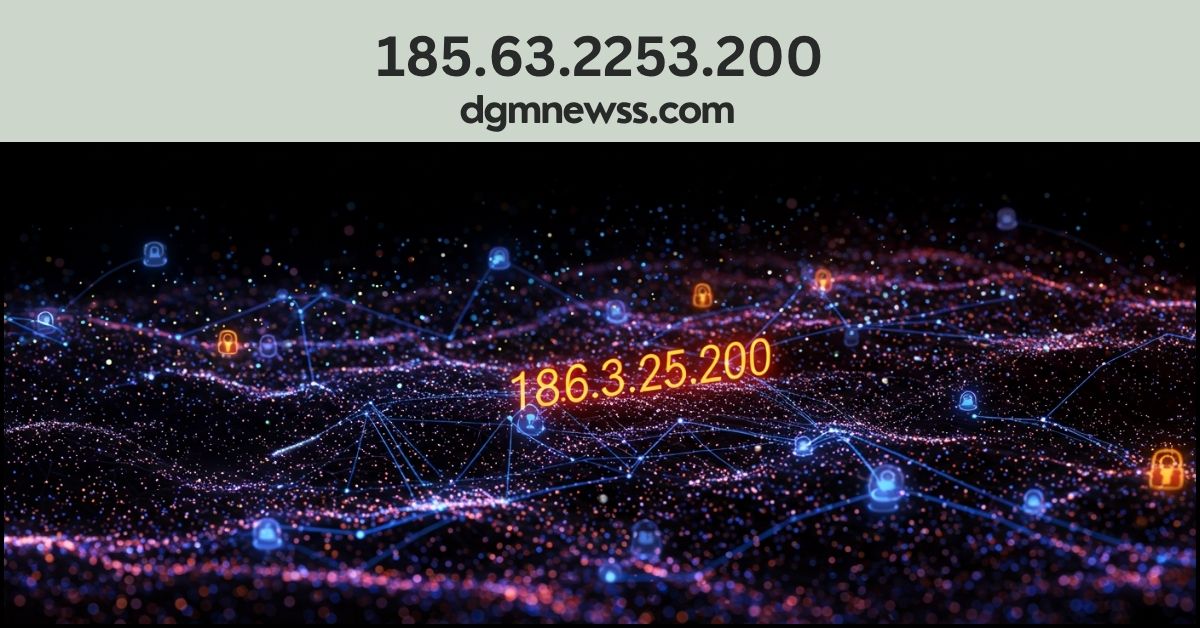The internet runs on numbers—specifically IP addresses—that allow every device, website, and server to communicate. However, sometimes you might see something that looks like an IP address but isn’t quite right. One such example is 185.63.2253.200.
At first glance, this string seems like a normal IPv4 address. It has four sets of numbers separated by dots, following the same pattern as real IPs. But on closer inspection, the third block—2253—breaks the rules. In standard IPv4 formatting, each section (called an octet) can only have values between 0 and 255. Since “2253” is way beyond that limit, 185.63.2253.200 is not a valid IP address.
Still, you may come across this malformed IP-like string in real-world situations—like log files, software configurations, or even cybersecurity alerts. So, what does it mean? Why does it appear? And should you worry about it?
Let’s explore everything you need to know about 185.63.2253.200—what it is, why it matters, and how to handle it safely and intelligently.
What Is an IP Address?
An IP address (Internet Protocol address) is a unique numeric label assigned to every device connected to a network. It’s how your computer, phone, or server identifies itself on the internet—similar to how a street address identifies your home.
There are two main versions of IP addresses in use today:
IPv4
- Format: 32-bit numeric address, divided into four blocks separated by dots.
- Each block ranges from 0 to 255.
- Example: 185.63.225.200
This means an IPv4 address can look like 192.168.0.1 or 8.8.8.8.
IPv6
- Format: 128-bit hexadecimal address separated by colons.
- Example: 2001:0db8:85a3:0000:0000:8a2e:0370:7334
- Designed to solve IPv4 exhaustion by offering more unique addresses.
So, when you see something like 185.63.2253.200, it initially resembles IPv4—but the “2253” section is invalid. No device could ever have such an address on a real network.
Why 185.63.2253.200 Is Not a Valid IP Address
The IPv4 standard (RFC 791) strictly limits each octet to values between 0 and 255. Each octet represents 8 bits, and the maximum binary value 11111111 equals 255 in decimal.
In 185.63.2253.200, the third octet “2253” would require more than 8 bits to represent. Therefore, it cannot be parsed as a valid IPv4 address by any operating system or network protocol.

Source: Mastering SFM Compile
Quick Validation Test
✅ 185.63.225.200 → Valid IPv4
❌ 185.63.2253.200 → Invalid IPv4 (Octet exceeds limit)
This might seem like a small difference, but in networking, even a single misplaced digit can break routing, logging, or firewall rules.
Why Malformed IP Strings Like 185.63.2253.200 Appear
Despite being invalid, strings like this show up surprisingly often. Understanding why they appear helps network engineers, developers, and cybersecurity professionals interpret logs correctly and prevent misconfigurations.
Here are the most common reasons:
Also Read: STC Jagnet: Your Ultimate Guide to South Texas College’s Student Portal in 2025
1. Placeholder or Test Data
Developers often use fake IP-like strings for testing or prototyping. These placeholders allow them to build and test network-dependent systems without exposing real servers.
Example:
During a software test, a developer may hardcode 185.63.2253.200 into a config file.
Benefit: Keeps real IPs private and secure during development.
Risk: If forgotten in production, the system may fail to connect or misbehave.
2. Educational or Training Purposes
In teaching environments, trainers sometimes use invalid IP examples to demonstrate how validation works or to simulate error conditions.
Example:
A networking course might show 185.63.2253.200 to explain why IP validators reject it.
Benefit: No real-world consequences; safe to use in learning scenarios.
Risk: Students may mistakenly copy it into real configurations later.
3. Human Error and Typos
Simple mistakes are by far the most common reason malformed IPs appear. Typing 2253 instead of 253 can easily happen, especially in large configuration files or scripts.
Example:
A firewall rule mistakenly lists 185.63.2253.200 instead of 185.63.225.200.
Impact:
- The rule doesn’t apply to the correct target.
- Security holes remain open.
- Downtime or data exposure could follow.
4. Privacy or Obfuscation
Sometimes admins intentionally replace real IPs with fake ones in documentation, research papers, or public forums to hide sensitive details.
Example:
Instead of revealing the true IP of a production server, an admin might post 185.63.2253.200 as a decoy.
Benefit: Protects real network assets from being targeted.
Risk: Confusion if the placeholder is mistaken for a real address.
5. Internal or Custom Systems
In some internal applications or proprietary software, companies use IP-like formats for internal mapping or simulation.
Example:
A game engine or testbed system may use malformed IPs to simulate virtual environments.
Risk: If such logs are later reviewed by standard tools, they may cause parsing errors or false security alerts.
Security and Cyber Risks Associated with Malformed IPs
While a malformed IP like 185.63.2253.200 may seem harmless, it can sometimes signal deeper security or system issues. Cyber attackers and poor system configurations can exploit such anomalies in several ways.
Let’s look at the main risks.
1. Misconfiguration Risks
A simple typo in a firewall, DNS record, or routing table can lead to major disruptions.
Consequences:
- Firewalls fail to block the intended targets.
- Services become unreachable.
- Security teams waste time chasing false leads.
Example:
You meant to block 185.63.225.200 but entered 185.63.2253.200.
Result: The real malicious IP remains open.
2. Attack Surface Expansion
Hackers sometimes deliberately send malformed IPs to exploit weak parsers or misconfigured systems.
They might:
- Trigger buffer overflows in unprotected code.
- Confuse intrusion detection systems (IDS).
- Slip malicious traffic past filters.
Example:
A botnet could send 185.63.2253.200 in logs to distract analysts while attacking nearby valid IP ranges.
3. Log Poisoning and Data Obfuscation
Attackers can insert fake or malformed IPs into logs to mislead forensic teams. This tactic is called log poisoning.
Scenario:
A hacker injects 185.63.2253.200 into the access logs of a server.
When analysts review the data, they may waste hours chasing a non-existent IP.
Impact: Slows response time and hides the attacker’s real IP.
4. Bypassing Weak Filters and Validation
Systems with weak input validation may mistakenly accept malformed IPs as legitimate input.
Risks:
- Attackers can bypass whitelists or blacklists.
- Security tools may crash or misclassify data.
- Vulnerabilities can be exploited to run malicious scripts.
5. Phishing and Social Engineering
In phishing or scam campaigns, attackers often use fake IP-like strings to appear technical and credible.
Example:
A phishing email might include a line like:
“Please verify your connection to 185.63.2253.200 to restore your account.”
To non-technical users, it looks legitimate—yet it’s entirely fake and designed to trick them into clicking harmful links.
Also Read: AgTalk: The Ultimate Online Hub for Farmers and Agricultural Professionals
6. False Sense of Security
Many administrators see malformed IPs as simple typos and ignore them. But ignoring anomalies can be dangerous.
Lesson: In cybersecurity, even meaningless strings can reveal valuable clues about system misuse, failed scripts, or intrusion attempts.
How to Investigate 185.63.2253.200 or Similar Strings
If you encounter 185.63.2253.200 in a log, configuration file, or security alert, don’t panic. Instead, follow a structured investigation approach.
Here’s how to handle it like a professional:
1. Validate the Format
Use an IP validation tool or script to confirm whether it’s a legitimate address.
Quick Tools:
- WhatIsMyIP.com
- ipinfo.io
- Regex checks for IPv4 format: ^(([0-9]{1,3}\.){3}[0-9]{1,3})$
Since “2253” is above 255, all validators will mark it as invalid.
2. Check the Source of Appearance
Where you found the string determines its meaning:
- Server logs: May suggest a malformed request or probe.
- Configuration files: Likely a typo or placeholder.
- Documentation: Probably an educational or obfuscation example.
- Application output: Possibly test data or a faulty generator.
Ask: Who entered it—human or system?
3. Compare with Similar Valid IPs
Sometimes malformed IPs hint at nearby valid ones. Try correcting it to 185.63.225.200 and check if that address exists.
Use these tools:
- ping or traceroute (for connectivity)
- whois (to find ownership details)
- nslookup (to resolve hostnames)
If a valid neighboring IP is live, it could indicate a miswritten log entry.
4. Cross-Reference with Threat Databases
Search for nearby IPs in security databases like:
- AbuseIPDB
- VirusTotal
- AlienVault OTX
Even though 185.63.2253.200 is invalid, similar addresses (e.g., 185.63.225.200) might be part of known botnets or phishing networks.
5. Apply Strong Input Validation
To prevent malformed IPs from entering your system:
- Use strict validation rules in code (check 0–255 range).
- Reject any input that doesn’t match valid patterns.
- Regularly sanitize data before logging.
Tip:
In Python or JavaScript, libraries like ipaddress or netaddr can automatically verify and reject malformed IPs.
6. Secure and Monitor
Once identified, document the finding and monitor for similar anomalies.
- Add alerts in your SIEM (Security Information and Event Management) system.
- Educate your team to recognize malformed IP patterns.
- If it appears repeatedly, investigate whether a script or attack bot is behind it.
Best Practices to Avoid IP Misconfigurations
Preventing malformed IP strings isn’t just about security—it’s also about operational efficiency. Here are practical steps every admin or developer should take:
Also Read: Ibúfen 400 mg: Complete Guide to Uses, Dosage, Benefits, and Safety
- Use Validation Tools Before Deployment
Always test configuration files with IP validators before pushing them to production. - Automate Error Checking
Include syntax checks in CI/CD pipelines to catch malformed inputs early. - Standardize Configuration Templates
Use predefined templates for IP rules, DNS entries, and firewall lists. - Avoid Hardcoding IPs
Store IPs in environment variables or secure databases instead of directly embedding them in code. - Implement Logging Hygiene
Sanitize logs regularly and remove test or placeholder data before production release. - Educate Your Team
Training developers and network admins on IP standards can prevent costly misconfigurations.
Real-World Example: Misconfiguration Leading to Security Risk
In 2024, a financial organization experienced downtime after a typo in its firewall rule.
Instead of blocking 185.63.225.200, the admin entered 185.63.2253.200.
The system didn’t recognize it as valid, so the rule was ignored—and attackers accessed the exposed port.
Lesson: A single invalid digit can compromise an entire network.
FAQs About 185.63.2253.200
Is 185.63.2253.200 a real IP address?
No. It’s invalid because “2253” exceeds the allowed IPv4 range of 0–255.
Why might it appear in logs?
It could be a placeholder, a typo, a test value, or even an attempt to hide a real IP address.
Can malformed IPs cause harm?
Yes. While harmless on their own, they can indicate misconfigurations, security flaws, or deception tactics in cyberattacks.
How can I fix it in configuration files?
Simply replace it with a valid IP address (e.g., 185.63.225.200) or correct the range.
Can I trace or block it?
No, it won’t resolve to any device. But ensure your firewall still filters similar malformed input attempts.
Should I report it?
If it appears in security logs, report it internally or check nearby IPs in threat databases.
Final Thoughts
The mysterious string 185.63.2253.200 might look technical, but it’s nothing more than an invalid IP format. Yet, its presence can teach important lessons about accuracy, validation, and vigilance in network security.
Whether it’s a placeholder, a typo, or a misleading entry in your logs, the key takeaway is clear: always validate before trusting.
In a digital world where every number and dot can make a difference, even an invalid IP can uncover misconfigurations, reveal attack attempts, or signal poor data hygiene.
By staying alert, validating every input, and training your team, you can ensure that strings like 185.63.2253.200 never become the cause of bigger problems in your system.




